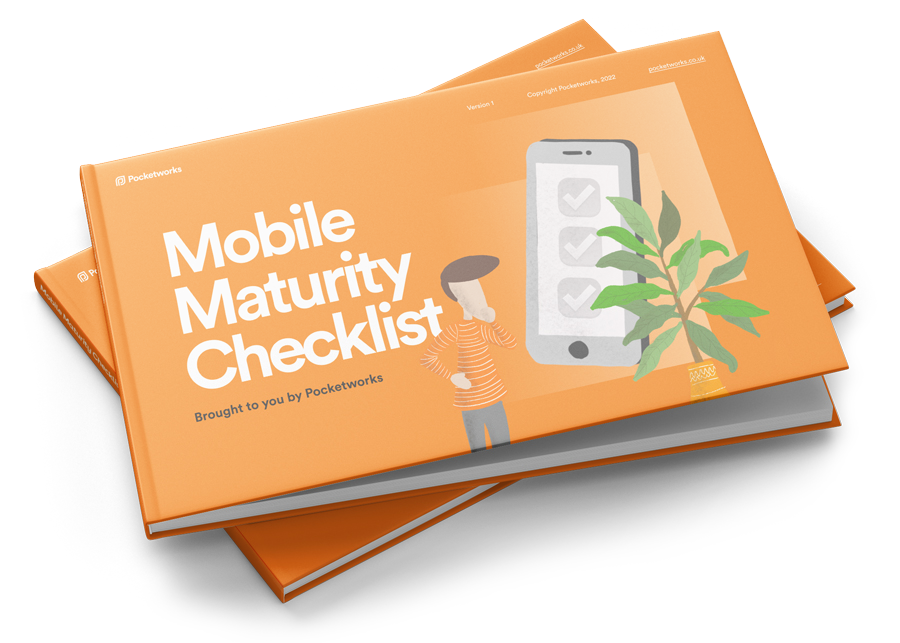When you undertake a digital transformation, you’re changing your business culture into one that embraces digital on an ongoing basis. This entails creating an environment where your people can continually learn about digital technologies. It’s about conducting experiments and using what you learned in future experiments.
Making digital ubiquitous in your business
The goal is to become a digital business that uses technology to create a better experience for customers and staff. Right now, this could mean experimenting with things like mobile apps, process automation, the Internet of Things, augmented reality and big data.
These challenges create a barrier to entry because managers feel they need to invest heavily in order to get a digital transformation off the ground.
The first steps don’t have to be hard
The truth is, Digital Transformation is simple. Any company can start doing it immediately with little cost. If you think about it, when you start a digital transformation you only have to take the few first steps of a long-term journey. So you can start that journey in a very simple way and then ramp up and evolve.
The key thing is getting started.
To emphasize this point, here’s a digital transformation program you could get up and running in 10 minutes.
A ten-minute digital transformation plan
This ten-minute task will help you kick-start a digital transformation. It demonstrates how easy it is to get the ball rolling. Hopefully, it removes some of the mystery around what digital transformation really is.
Here’s the short version of the plan which you can get rolling very quickly.
- Select two influential people in your business who could be involved with your digital transformation
- Ask them to each shortlist three digital technologies that they don’t understand, but which might help your business
- Schedule some quick-win training in these technologies over the next two months
- Gather together to share the learnings and shortlist the most promising of the six technologies you have learned about.
- Now ask each to schedule a short, low-cost digital experiment using the most promising digital technology. Define what success looks like.
- Measure the results, remembering that failure is perfectly fine
- After three months, rinse and repeat. Try different technologies or keep experimenting with positive ones. Involve more people and run more experiments at once. Fill your calendar up with a roadmap of learning and experimenting for the next 12 months.
Within 3 months you will have learned about six new technologies. You’ll also have experimented with 2 of them. You might have gained some business benefits to boot. You’ll have a 6-12 month roadmap to learn about new technologies and try them out, involving more and more people. Before long, you’ll have most of your people involved in this process, and are becoming experts at applying modern digital technologies within your industry.
Here’s a breakdown of the steps.
Step 1 – Pick 1-5 influential people in your business
Write down the names of two influential leaders in your business. These might include you, your heads of department, or your most engaged people.
Eventually, you’ll want all of your people to be somehow involved in the process of being a digital business. This is because you’ll gradually be creating a culture-shift where exploring digital technologies is 2nd nature. It’s will become a continual thing, not a one-shot exercise.
Step 2 – Ask them what digital technologies they don’t understand, which might be able to help
An essential part of conducting a digital transformation is to find areas to explore and achieving a cadence for learning and experimenting. Pull in the selected people and ask them these questions.
- List one or more potential digital technologies they know of that could make customers have a nicer experience with your company.
- List one or more potential technologies they know of that could make staff more efficient and happy.
- List one or more technologies they have heard of that might help the business, but they are not sure exactly how or why.
Some examples:
- Your marketing manager thinks he should be using Marketing Automation but doesn’t really understand it.
- Your sales manager thinks he should be decision led digital sales aids, but has no idea if it’s right for you or what it might involve.
- Your operations manager thinks they should be using mobile apps to streamline on-site engineering visits. But they don’t fully understand the technologies in play.
You should now have a list of 6 or more relevant digital technologies that might improve your business by enhancing your experience or staff productivity.
Eventually, you can pull in more people and repeat this exercise. Before long you will start shifting their mindsets toward continually experimenting with digital technologies.
Step 3 – Schedule some light and fast training
The next step is to schedule a few hours getting a better understanding of these digital technologies. There are several ways to do this.
- Find a local meetup about the event (on EventBright or meetup.com)
- Invite local experts to come in and talk about it
- Find webinars by companies offering services in these areas
- Purchase and read books on the subject
- Etc
With a little work, you will have scheduled in a number of dates for people to start learning about relevant digital technologies.
Congratulations, you are now undergoing a digital transformation.
This is because you have already taken positive action to learn about new technology and hopefully use it to create a better experience for customers or staff. You’re not completely off the hook because the next step is to start using that technology. And after that, you need to make sure you can continually repeat this process and involve more people.
Step 4 – Share learnings and shortlist next steps
After learning about some technologies, you should be in a position to evaluate if they can help your business. Shortlist two of the most promising of the 6 technologies you have learned about.
Then form a hypothesis about how those technologies might help, if used correctly. A hypothesis might be:
“If we start doing automated outbound marketing emails on a drip campaign, it will create a new repeatable lead source”
Or
“If we give our 100 engineers smartphones for completing surveys on-site, it will allow them to each to do one more job a week”
The hypothesis doesn’t have to be “right”, it just needs to feel like something sensible worth experimenting with. Don’t get hung up on the “right or wrong”. Also, at this stage don’t worry if you don’t know how to test the hypothesis, you can get to that in the next step.
Step 5 – Run small, fast experiments
Once you have learned a little about some new digital technologies and picked some hypothesis about how these can help your business, you can start to run some experiments. The goal is to find a quick, low cost way to explore if these technologies can improve your business in some way.
Let’s say you’ve learned about email marketing automation, and believe that email drip campaigns can become a new lead source to generate more sales. You have the following hypothesis:
“If we start doing automated outbound marketing emails on a drip campaign, it will create a new repeatable lead source”
So the next step is to design some experiments to test this.
Here are some examples:
- Subscribe to bant.io for a month and run some automated email marketing campaign to generate new leads (around £800, easy to implement)
- Buy a prospect email list, then upload to MailChimp and start sending out targeted emails (around £1,000 in consultancy, moderately easy implement).
Other examples for completely different experiments might be:
- Develop a really simple mobile app that allows engineers to capture data in the field to replace a paper form they are using (estimated cost around £10K)
- Develop a mobile kiosk to put in a retail store alongside your physical products to educate customers (estimated cost is £25K)
- Give one of your sales divisions iPads and have them use DropBox or PocketMEDIA to have a consistent set of resources.
- Experiment with different SEO keywords or Facebook ad ideas.
Step 6 – Measure the results
Like any experiment, you need some way of measuring success or failure. It is useful to work out which business KPI’s you need to drive also. How will this experiment affect your overall business mission?
Create an experiments spreadsheet and track the results of these experiments. Then have a workshop to discuss outcomes and plan the next experiments.
Step 7 – Rinse and repeat
Continue your digital transformation by repeating this process of learning, experimenting and measuring. Gradually increase the number of people involved so that more of your organisation influence the transformation.
How Pocketworks can help
Many of our clients are undertaking a digital transformation to make their businesses more competitive. You can hire us to help run experiments that help your team learn about digital. We’re good at applying mobile technology to make businesses more efficient, or to help them attract new customers. If you’re interested in improving your services or products with mobile, we’d welcome a conversation with you .

